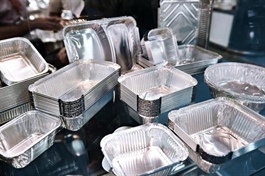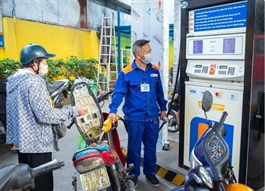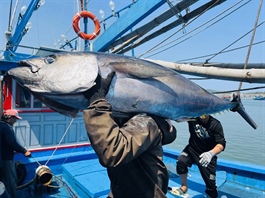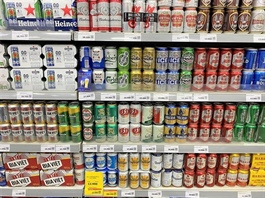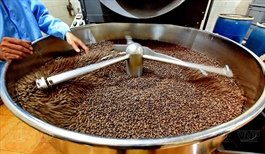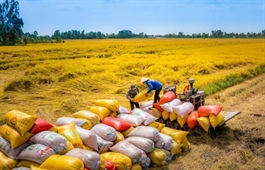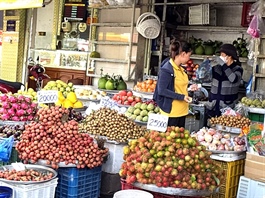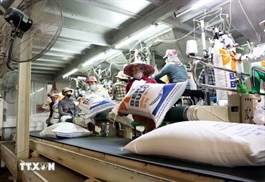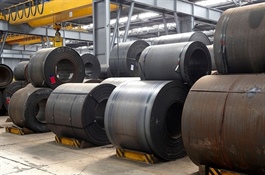Dairy exporters to China must adjust their production processes
Dairy exporters to China must adjust their production processes
Only fresh cow or goat milk can be used as raw material for sterilised milk production, including ultra-high temperature (UHT) and pasteurised milk.
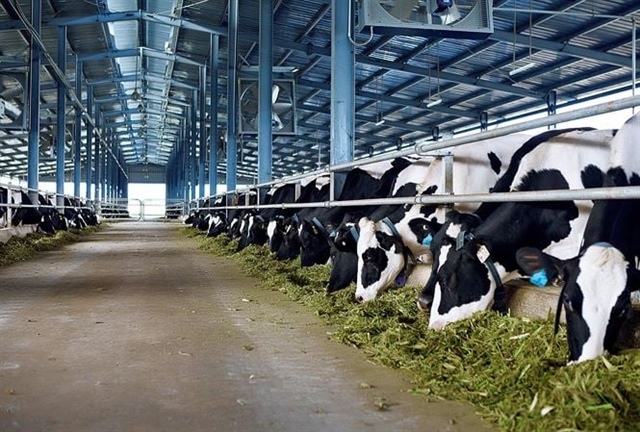
A corner of a dairy farm. — Photo nhadautu.vn |
China will only allow the import of sterilised milk made from fresh raw milk and will no longer accept reconstituted milk starting September 16 this year, which will significantly impact Việt Nam’s dairy exports to this market.
The Department of Foreign Market Development, under the Ministry of Industry and Trade (MoIT), has announced that China has issued Amendment Appendix No. 1 to its National Food Safety Standard for Sterilised Milk (GB 25190-2010).
The key revisions include the elimination of the provision that permits the use of reconstituted milk for use in sterilised milk production. Reconstituted milk is produced by adding water to milk powder or condensed milk.
Only fresh cow or goat milk can be used as raw material for sterilised milk production, including ultra-high temperature (UHT) and pasteurised milk.
The technical requirements related to reconstituted milk powder used as a raw material have been removed.
The labelling regulations concerning the use of reconstituted milk have also been eliminated.
As a result, after September 16, products using reconstituted milk will no longer be recognised as sterilised milk under the new standard, meaning they can not be exported under the current product codes.
According to the Department of Foreign Market Development, Việt Nam currently still uses reconstituted milk in the production of sterilised milk, so this change will significantly affect the country’s dairy exports to the Chinese market.
Vietnamese dairy companies are therefore compelled to swiftly adjust their product formulations, production processes, documentation and labelling, and must completely shift to using fresh raw milk if they wish to continue exporting.
Products containing reconstituted milk exported to China will have to be classified as formulated milk, which could limit market access, especially since sterilised milk holds a large market share in China’s dairy consumption structure.
In addition, this change may lead to various additional costs, such as higher raw material prices, production line adjustments and risks related to the stability of fresh milk supply. These factors will negatively impact price competitiveness and the ability to maintain market share for Vietnamese dairy products.
The Domestic Market Development Department therefore recommended that the MoIT assign the Industry Agency to take the lead, in coordination with the Agency for Foreign Trade and other relevant units, to study and assess the impact of China's new dairy standards policy and provide policy recommendations for managing and developing the dairy industry.
The Department of Foreign Market Development continues to coordinate with relevant units to monitor and update developments related to the Chinese market for milk and dairy products.
China is one of the world’s largest and most promising dairy consumption markets.
According to Người Lao Động (Labourer) online newspaper, the consumption of sterilised (UHT) milk reached approximately 8–9 billion litres (equivalent to 6.5–7.3 million tonnes) in 2023, with an estimated retail revenue of 1.2 trillion Chinese yuan (around US$166 billion), accounting for 82.9 per cent of the liquid milk market share. In contrast, pasteurised milk held only 17.1 per cent.
Việt Nam’s exports of unconcentrated and unsweetened milk and cream (such as fresh milk and UHT milk) to China reached a value of $81,500 in the first five months of this year.
Exports of concentrated or sweetened milk and cream (such as condensed milk or sweetened milk) amounted to 33,300 tonnes.
Exports of dairy spreads, curdled milk and other fermented milk and cream products reached $202,600 in value.
- 06:53 16/07/2025







